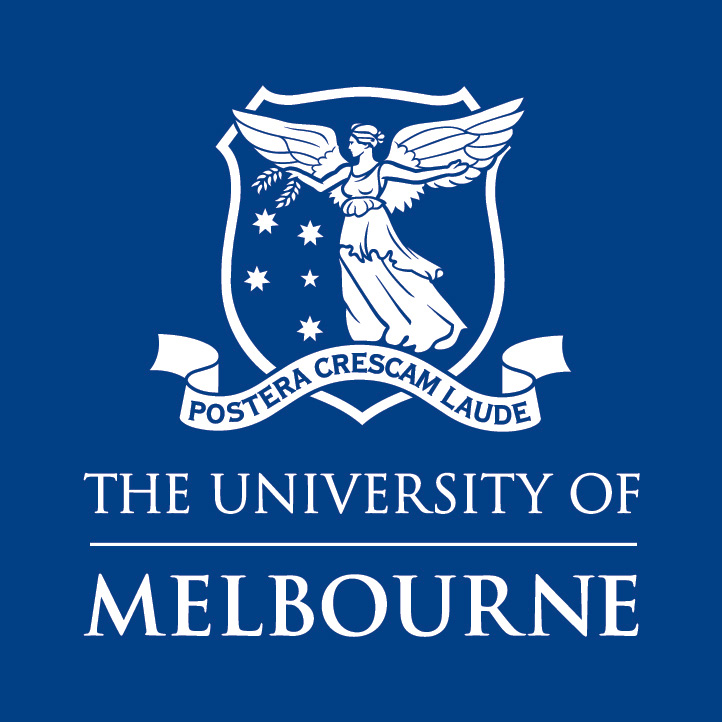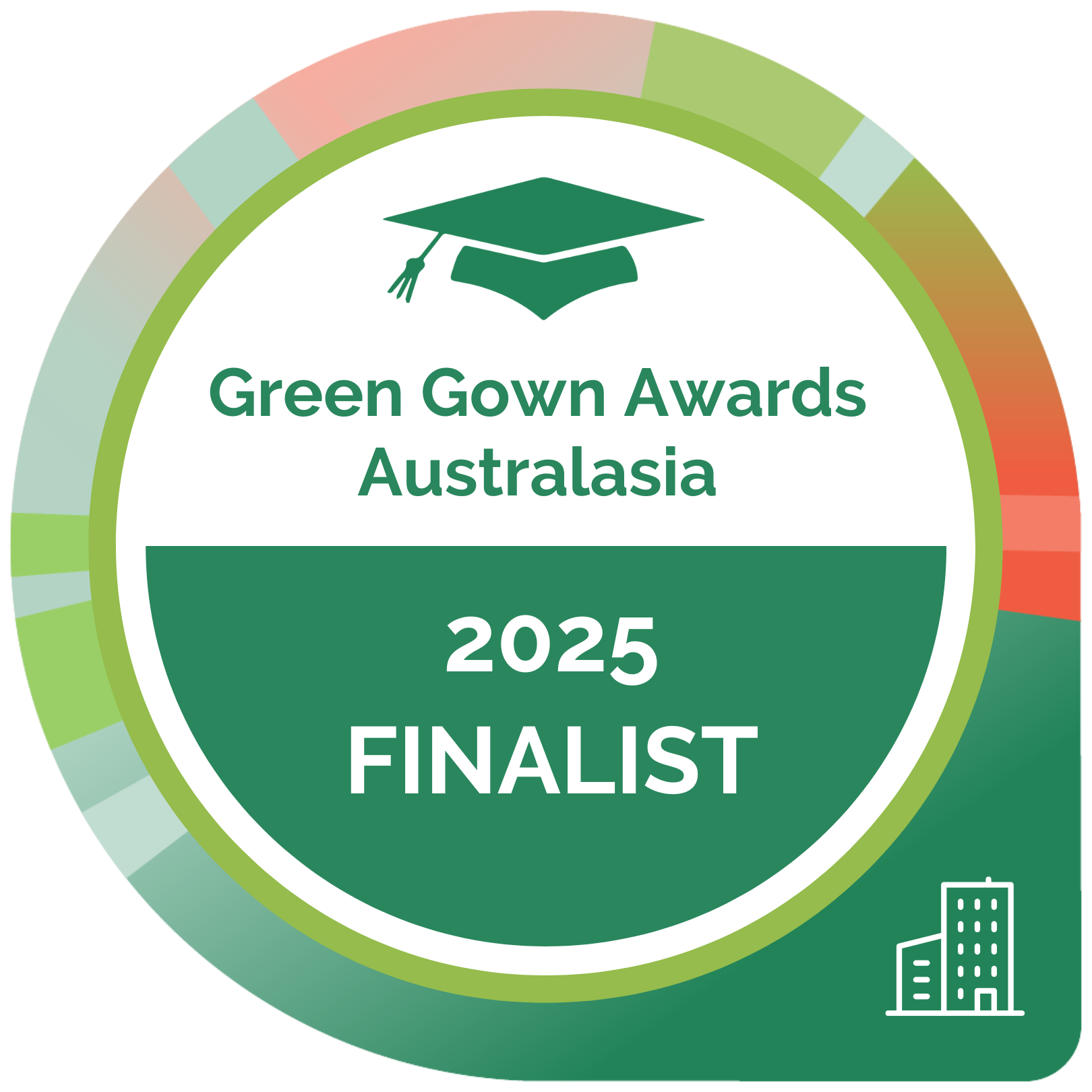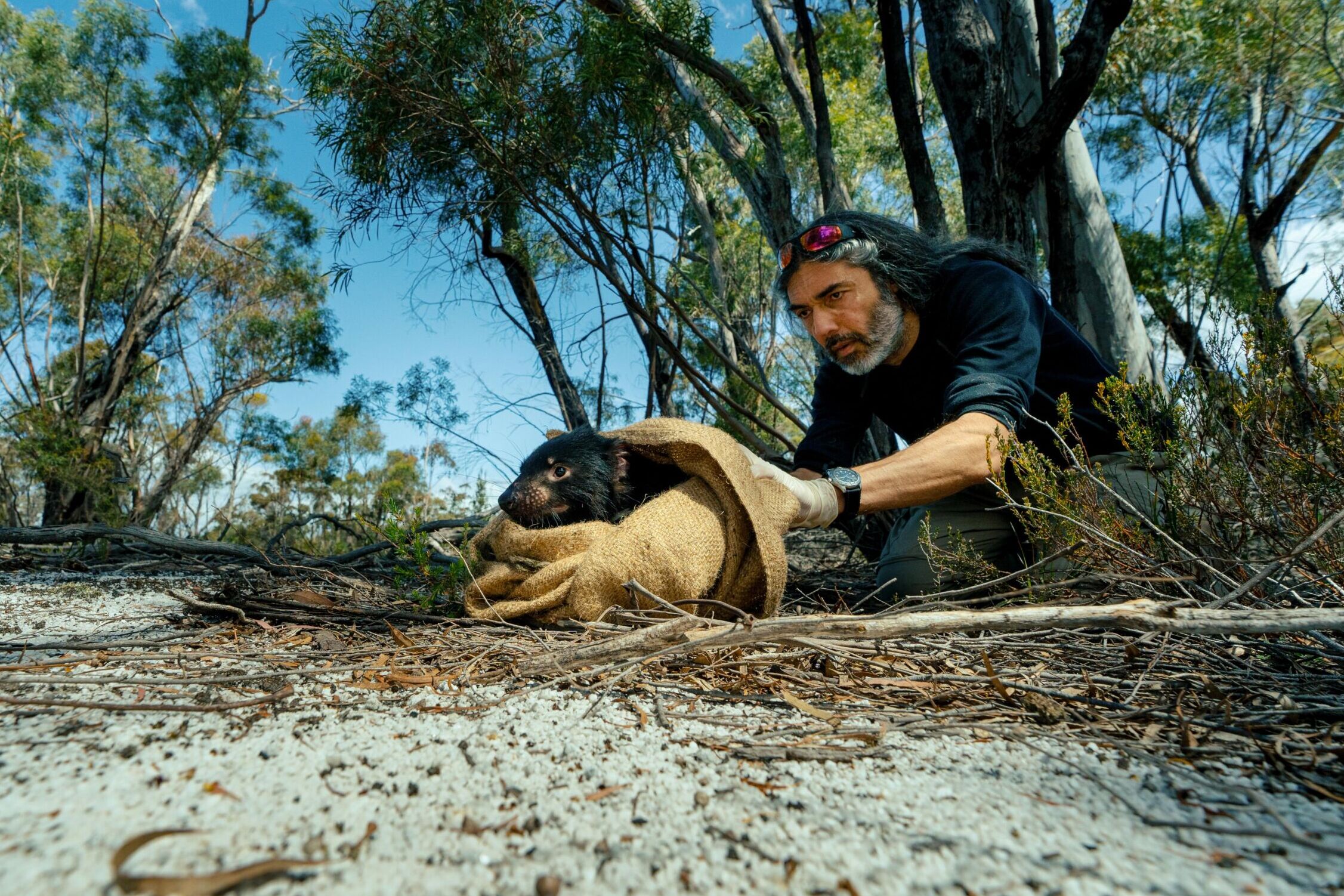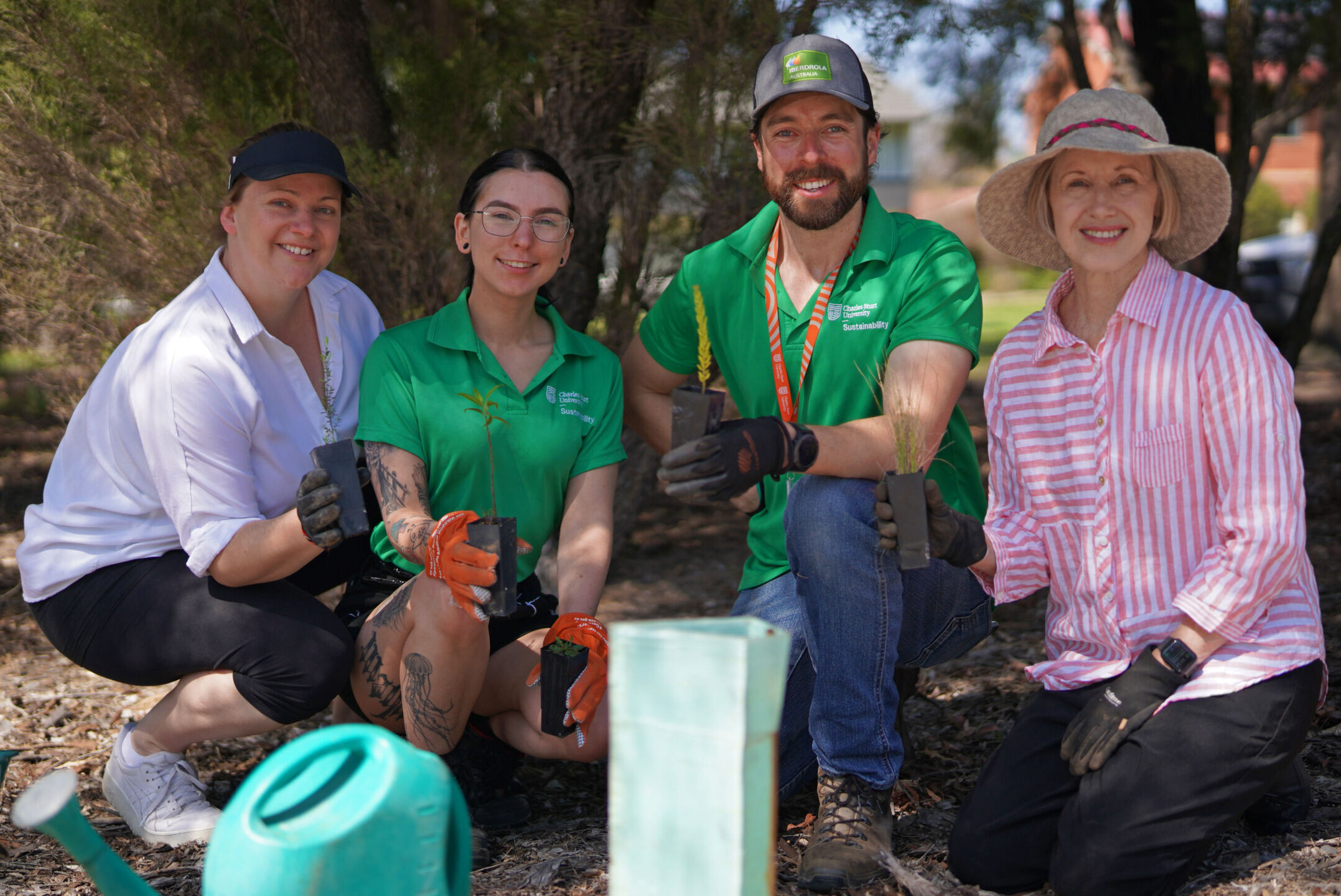Nature Positive category
The Biodiversity Baseline Data Project (BBDP) is the University of Melbourne’s flagship initiative to quantify and monitor biodiversity across its eight campuses. Beginning in 2019, the project established an innovative, metrics-driven framework to collect ecological data, guide on-ground improvements, and embed biodiversity in operational, academic, and community engagement strategies. With seven core metrics—ranging from species diversity to canopy cover—the BBDP is shaping a whole-of-campus response to biodiversity loss and helping to protect, enhance, and expand on-campus biodiversity. The initiative informs strategic planning, land management, and curriculum development, while contributing to sector-wide knowledge-sharing through dashboards, partnerships, and the ACTS Biodiversity Working Group.
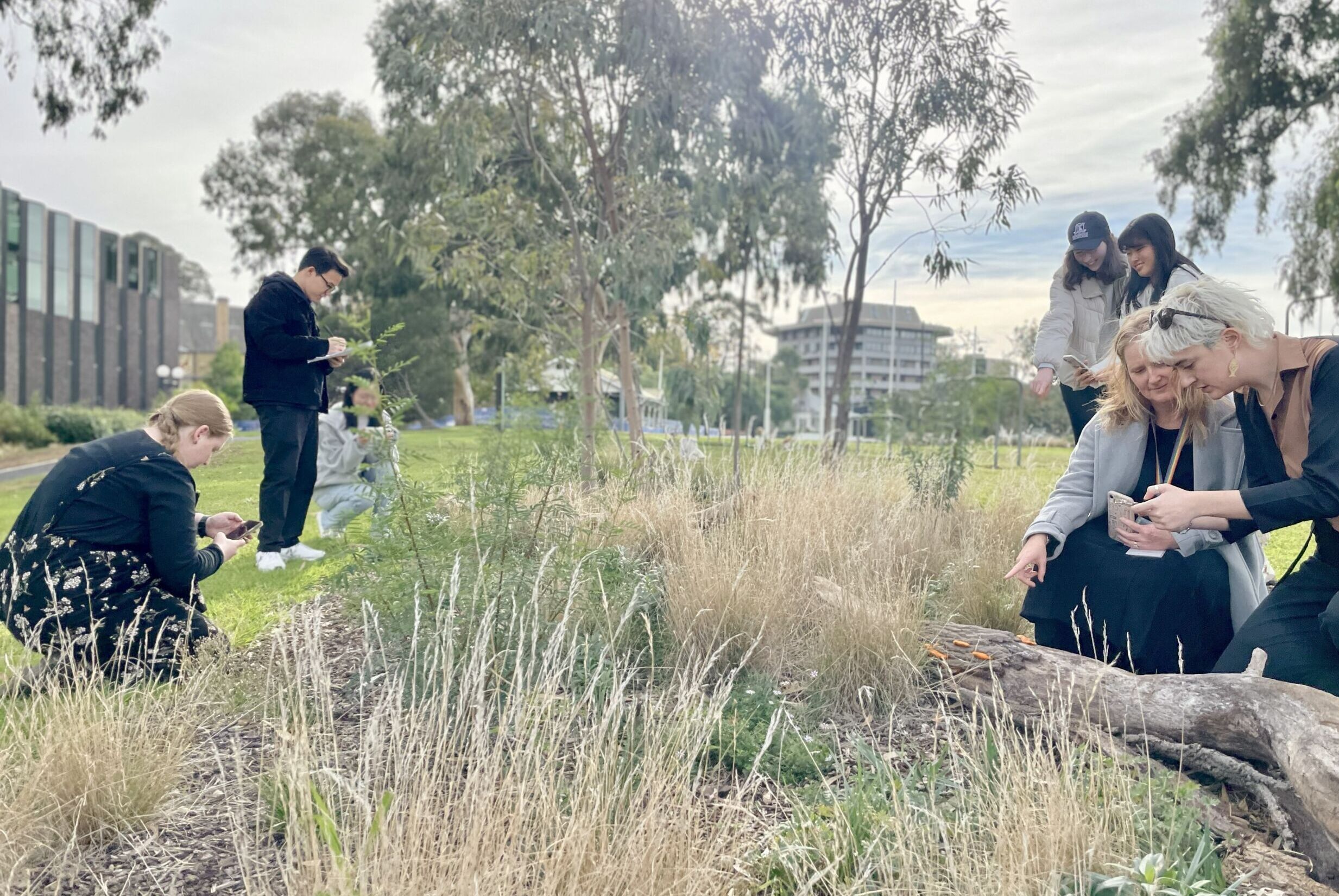
Environmental and Social Benefits
- Contributed to the planting of more than 13,500 plants, engaging volunteers across the Parkville, Southbank, and Werribee campuses since 2022.
- Directly informs campus master planning and land management activities using localised biodiversity data and metrics.
- Created several publicly available biodiversity dashboards enhancing transparency and public engagement.
- Developed FaungiFinder, a biodiversity observation analysis tool that automatically analyses data from the Atlas of Living Australia. The tool aims to support landowners, institutions, and biodiversity enthusiasts in understanding their local biodiversity, helping to inform decision making.
- Restoration activities, such as invasive species removal and bushland management, will help to improve species diversity across priority campus sites, while simultaneously engaging local communities and students.
Leadership and Engagement
- Over 1,250 students have contributed to the project through citizen science, coursework, student casual employment, internships, and volunteering, with biodiversity now embedded in multiple faculties’ curricula.
- Knowledge exchange between staff, researchers, and students, helping sustain the initiative institution-wide.
- Leadership & relationship curation from the Sustainability Delivery team ensures the project continues to evolve as a strategic driver of ecological improvement and cultural change.
Significance to the Sector
- Offers a replicable and scalable model for biodiversity monitoring using pragmatic, scientifically grounded metrics and commonly available digital tools.
- Informed the development of the ACTS Biodiversity Working Group and is being used to support other universities to monitor their biodiversity in a standardised way.
- Encourages universities to sign the Nature Positive Universities Pledge by providing an accessible framework for assessing their biodiversity.
Wider Societal Impact
- Demonstrates how universities can lead biodiversity action through adoption of a measurable, transparent framework.
- Builds ecological literacy and nature stewardship among future professionals across diverse disciplines.
- Inspires broader uptake of citizen science, helping empower the University community to contribute to citizen science efforts and biodiversity management in broader society.
Top 3 learnings
Supported by

Category finalists
Nature Positive/Winner
Nature Positive/Winner
Nature Positive
Nature Positive
Nature Positive/Winner
Nature Positive/Winner
Nature Positive/Winner
Nature Positive/Winner
Past winners
Benefitting Society/Winners
Benefitting Society/Winners
Diversity, Equity & Inclusion in Sustainability/Winners
Diversity, Equity & Inclusion in Sustainability/Winners
Climate Action/Winners
Climate Action/Winners
Sustainability Institution of the Year/Winners
Sustainability Institution of the Year/Winners
Creating Impact/Winners
Creating Impact/Winners
Creating Impact/Winners
Creating Impact/Winners
Top 3 learnings
Nature Positive category
The Biodiversity Baseline Data Project (BBDP) is the University of Melbourne’s flagship initiative to quantify and monitor biodiversity across its eight campuses. Beginning in 2019, the project established an innovative, metrics-driven framework to collect ecological data, guide on-ground improvements, and embed biodiversity in operational, academic, and community engagement strategies. With seven core metrics—ranging from species diversity to canopy cover—the BBDP is shaping a whole-of-campus response to biodiversity loss and helping to protect, enhance, and expand on-campus biodiversity. The initiative informs strategic planning, land management, and curriculum development, while contributing to sector-wide knowledge-sharing through dashboards, partnerships, and the ACTS Biodiversity Working Group.

Environmental and Social Benefits
- Contributed to the planting of more than 13,500 plants, engaging volunteers across the Parkville, Southbank, and Werribee campuses since 2022.
- Directly informs campus master planning and land management activities using localised biodiversity data and metrics.
- Created several publicly available biodiversity dashboards enhancing transparency and public engagement.
- Developed FaungiFinder, a biodiversity observation analysis tool that automatically analyses data from the Atlas of Living Australia. The tool aims to support landowners, institutions, and biodiversity enthusiasts in understanding their local biodiversity, helping to inform decision making.
- Restoration activities, such as invasive species removal and bushland management, will help to improve species diversity across priority campus sites, while simultaneously engaging local communities and students.
Leadership and Engagement
- Over 1,250 students have contributed to the project through citizen science, coursework, student casual employment, internships, and volunteering, with biodiversity now embedded in multiple faculties’ curricula.
- Knowledge exchange between staff, researchers, and students, helping sustain the initiative institution-wide.
- Leadership & relationship curation from the Sustainability Delivery team ensures the project continues to evolve as a strategic driver of ecological improvement and cultural change.
Significance to the Sector
- Offers a replicable and scalable model for biodiversity monitoring using pragmatic, scientifically grounded metrics and commonly available digital tools.
- Informed the development of the ACTS Biodiversity Working Group and is being used to support other universities to monitor their biodiversity in a standardised way.
- Encourages universities to sign the Nature Positive Universities Pledge by providing an accessible framework for assessing their biodiversity.
Wider Societal Impact
- Demonstrates how universities can lead biodiversity action through adoption of a measurable, transparent framework.
- Builds ecological literacy and nature stewardship among future professionals across diverse disciplines.
- Inspires broader uptake of citizen science, helping empower the University community to contribute to citizen science efforts and biodiversity management in broader society.
Supported by

Related finalists
Nature Positive/Winner
Nature Positive/Winner
Nature Positive
Nature Positive
Nature Positive/Winner
Nature Positive/Winner
Nature Positive/Winner
Nature Positive/Winner
Other finalists
Climate Action

Driving Towards Tomorrow’s Campus with Vehicle-to-Grid EV Technology
As part of Flinders University’s drive to innovate and become a leader in climate action, the University launched its Vehicle-to-Grid (V2G) initiative. This involved installing and maintaining 20x V2G and smart chargers for its growing electric vehicle fleet. Leveraging 100% renewable energy generated by ENGIE’s Willogoleche Wind Farm and Flinders University’s solar power systems, this enables the storage of renewable energy in EV batteries to be discharged on campus during peak demand periods. Hence, allows for these EV fleets to operate as a Virtual Power Plant (VPP) to deliver peak demand management and optimization of behind-the-meter generation.
Overall, this initiative demonstrates the reliability and scalability of bi-directional and uni-directional smart-charging systems for EVs in reducing GHG emissions while facilitating teaching, research, and innovation opportunities. Moreover, it exemplifies a sustainable and innovative solution to scale energy storage technology and increase renewables.
Sustainability Champion – Staff/Winners

Brandan Espe
Environmental Officer / Acting Grounds Supervisor
Brandan has brought over 50 federally listed Endangered species of plant into the James Cook University living collection, many of which have never been cultivated and are found in no other collection in the world.
Of these, over half have been sustainably wild collected, inclusive of field and clone data, so they can be used for ongoing conservation, research and teaching, the remaining being sourced from private and partner organisations through favours of service or trades.
He personally funded the project from 2019-2022, until funding was awarded for the program due to its success, with the program now being engrained into the Universities landscapes for ongoing management should he leave JCU, creating a threatened species legacy collection.
The program has now expanded beyond this, with an additional 48 species now funded for further addition, some of which are only known from less than 5 sightings in history.
Student Engagement

Sustainability Leaders creating real impact!
La Trobe created a unique Sustainability Leaders volunteering program to increase engagement with students on campus and empower them to act against waste and promote sustainability. It included the following initiatives:
- Promoting the reusable crockery implementation,
- Increasing knowledge action of other students on campus to diversion comingled recycling and organic waste from landfill.
- Focus on waste audits and data,
- Improved signage through new waste posters for students living on campus.
- Collaboration with Cirka (our cleaning and waste partner) to create a waste wall and;
- Learning all things sustainability (net zero, biodiversity, waste, reusables, engagement)
These initiatives yielded significant results and with a reduction in waste contamination by almost 40% at the residential buildings and engagement with over 80 groups of people for the Reusable Revolution.
Creating Impact

Where knowledge meets habits: Empowering students for a sustainable tomorrow
Our online Sustainability Challenges offer participants an engaging, self-paced learning experience centered around a specific United Nations Sustainable Development Goal (UNSDG). Requiring minimal resourcing and at zero-cost to participants, we’ve created replicable, compact, scalable, and impactful learning opportunities that result in real impact.
The Challenges follow a structured process that moves participants from knowledge gain to simple action to celebration, to establish small but mighty habits relating to waste and carbon emissions. This approach recognises that knowledge alone is often insufficient to drive behaviour change, and that ease of action and celebration are crucial components in creating sustainable habits.
Sustainability Champion – Staff/Winners

Catherine (CeeJay) Donovan
Veterinary nurse – Anaesthesia
From establishing the Massey Vet School Green Team to leading impactful initiatives, my commitment to environmental sustainability has been making waves. With the help of my team, I have accomplished numerous small, yet meaningful actions, including integrating a sustainability lecture for final year vet students and implementing battery recycling alongside rechargeable battery use. Our larger projects encompass the introduction of green waste and soft plastics recycling bins, an energy audit resulting in power-saving measures, and playing a part in a successful rubbish audit. I spearheaded the ‘6 in 6’ campaign, empowering individuals with six simple steps for workplace sustainability. Through the SustainaVet social media pages I help to educate and inspire peers nationwide. As the Massey School of Veterinary Science sustainability champion, I had the privilege of speaking at the annual veterinary conference on sustainability in clinical practice. Currently I’m conducting pioneering research on responsible cat waste disposal. Together, we’re forging a greener future, one initiative at a time.
Sustainability Champion – Student

Louis Walmsley
SDG Coordinator Monash Association of Sustainability, Office Bearer Monash Student Association’s Environmental and Social Justice Department, Masters of Environment and Sustainability Student
Louis is an exceptional student sustainability leader at Monash University. His passion and dedication to sustainability have made a significant impact on the community. Louis’s values revolve around sustainability, which is evident upon meeting him. He actively participates in various sustainability groups, demonstrating his commitment to creating a more environmentally conscious society.
One of Louis’s notable involvements is with Precious Plastic Monash, where he organizes remarkable events and fosters collaboration among like-minded individuals, student groups, and staff. His contributions to the Monash Association of Sustainability have allowed him to conduct valuable research on plastic usage and climate action, resulting in positive changes within the university.
Through his work with the Monash Student Association, Louis has engaged hundreds of students in fun and interactive sustainability initiatives. He took the initiative to organize a sustainability food fair, which was one of the largest sustainability-related events held at Monash post-COVID. This accomplishment is a true testament to Louis’s hard work and creativity.
Louis is an outstanding student leader whose efforts in sustainability have had a lasting impact on Monash University and its community. His inspiring nature resonates with everyone who knows him.

